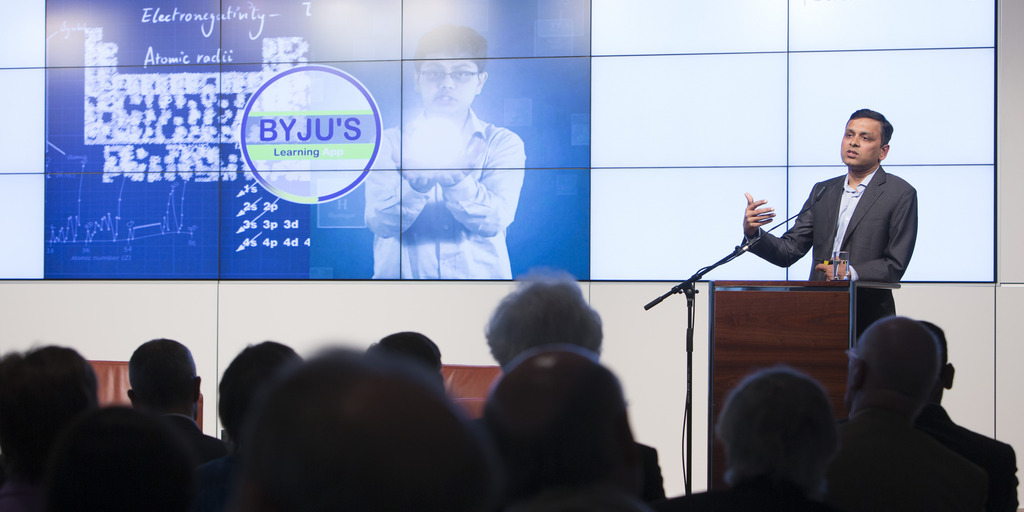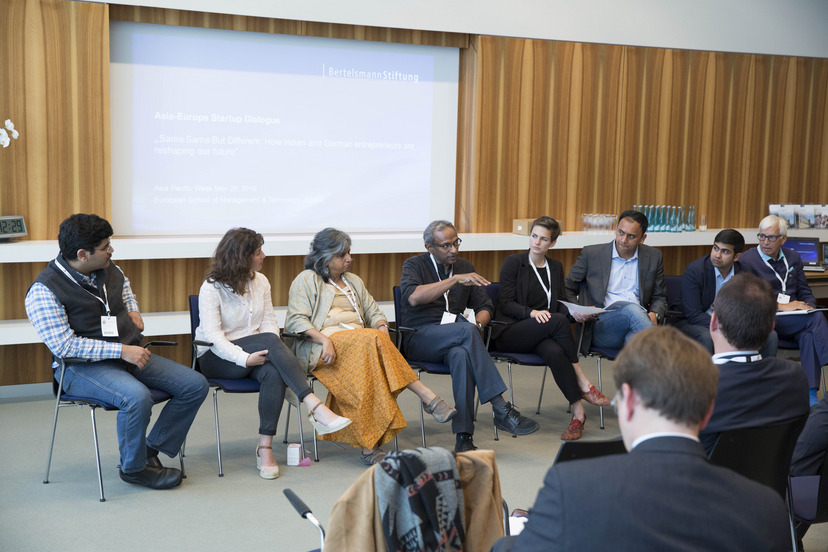German and Indian cities such as Berlin and Bangalore are home to internationally successful startups like Soundcloud and Flipkart and during the last three years have been among the fastest growing ecosystems worldwide. Low living costs and a strong creative scene provide favorable conditions and significantly increase the attention of international investors and talents.
However, despite the relatively mature institutional framework, the German entrepreneurial culture is still weak and has not exploited its full potential yet, as participants stated in the panel discussion. In comparison to India, entrepreneurs in Germany are often driven by necessity (meaning they have no better choice for work) rather than by market or business opportunities.
One reason for the relatively low level of entrepreneurship in Germany is the German education and vocational training system, Wolfgang Höltgen, co-founder of the Indian tech start-up "GreyOrange" argues. On one hand the system rarely conveys the necessary skills and capabilities to become a successful entrepreneur. On the other hand, it hardly promotes international connections with relevant institutions. That's why only 34 percent of individuals aged 15 to 64 in Germany indicate that their educational background helped them to gain entrepreneurial skills and capabilities.
A frequently used argument to explain this phenomenon is also the high fear of failure rate, which leaves a large portion of entrepreneurial opportunities in Germany untapped. Maxie Matthiessen, co-founder of the internationally renowned startups Ruby Cup and Femna adds that this phenomenon is further strengthened by the widespread misconception that entrepreneurial skills and capabilities are not acquired but innate ("Gründergen"). She stresses that "learning by doing and failing" rather than natural talent is what makes a successful entrepreneur. In this respect, German individuals could learn from the more positive and pragmatic approach towards entrepreneurship adopted by most Indians.
Indeed, India's entrepreneurial culture is perceived as much more dynamic, as the Indian participants note. Recent success stories of local startups helped inject wealth and expertise into the ecosystem and encouraged India's young population to set up their own business, as Samay Kohli, co-founder of the start-up GreyOrange describes his own experience. Furthermore, actors and institutions of the Indian start-up ecosystem are well connected internationally and among each other, significantly facilitating the acquisition of capital and other resources, argues Neelam Chhiber co-founder of the social start-up Industree foundation.





